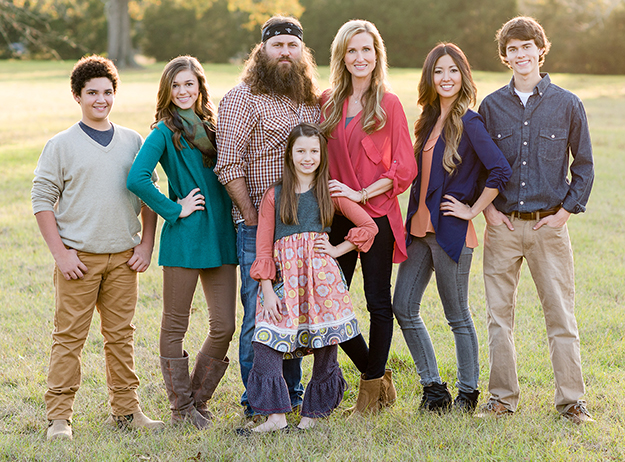
MD: Some people don’t know that you have a biracial son. What led to your decision to adopt?
KR: Growing up, my family always had people living in our home. I specifically remember two different families. We had a mom (with her children) come and live with us. She had just gotten out of an abusive relationship. They needed a place to live for awhile, until they got back on their feet. I was a teenager, in middle school, and somewhat of a “little mama.” I enjoyed taking care of babies and people who came to our home – people who needed someone to love them. I always felt like I wanted to do something like that one day. And when I was in high school, a teacher adopted a little boy. The teacher felt very strongly that Christians had a responsibility to take care of widows and orphans. That’s when I knew that I wanted to adopt some day. Willie and I started dating my senior year in high school, and whenever I brought that up to him, he was all there. It was never a question. When we got married, we knew that we were going to adopt some day. We didn’t know how or when, but we just knew that we would. When the time came, it was really a miracle. When we found out about our son, Will, we brought him into our home within a week. He was five weeks old.
MD: Was your son’s name “Will” when you brought him into your home, or did you name him Will?
KR: No, his name wasn’t “Will” when we got him. We named him Willie Alexander. We named him after Willie and Phil [Willie’s dad]. Phil’s middle name is Alexander.
MD: That’s interesting, because you have a biological son who is older. What made you give your adopted son Willie’s name?
WR: We wanted to make sure that [Lil Will] knew he was an important part of our family. We loved him right away. We talked about it, and decided that he would be named after me. We wanted him to know that, even though he didn’t look like me (he’s biracial), even though he wasn’t our biological child, we loved him – and he was my son.
MD: Did you deliberately set out to adopt a biracial baby, versus a child of another race or age?
KR: At first, we didn’t know if we would adopt an older child or a baby. But we found out that biracial children are really hard to place in the south. We were shocked by that. We thought, “Wow! That’s crazy.” It never crossed our minds that [race] would be an issue. But, sometimes, it still is in the south. Before we became “Duck Dynasty,” we just lived our lives. We just had our children, and they were our children. On a day to day basis, we didn’t’ think a whole lot about whether our children were adopted, or biracial, or anything like that. They were just our children. People’s responses have really been a surprise to us. Because of the spotlight, we speak on behalf of adoption, and encourage more people to do it. I think it’s our responsibility, as Christians, to ensure that all children have a home.
MD: I think people will be encouraged to know that, when you adopted your son, you couldn’t afford the adoption fee.
WR: I never wanted that to get lost. There might be a thought out there that a lot of celebrities have adopted because they have money ... because they can afford it. And people might think that regular people can’t do it. But that’s not the case. At the time, we couldn’t afford it. But just like in business, we took the chance and figured it out. Sometimes you don’t have all the answers, but you find a way to figure it out. If Christian families will adopt, we can make a huge impact. It’s about breaking that barrier, and getting people to think bigger than themselves. Of all the things we’ve done with our lives, adopting was the best thing we’ve done.
KR: I don’t think most people are ever financially prepared for a child – not even a biological child. You just do it. You figure it out. We’ve actually been working within our state to make the adoption process easier. It can be very difficult. I know that the system is set up to protect, but the process can be prohibitive. So we’re trying to fix those walls in our state, and help families who really want to adopt.







